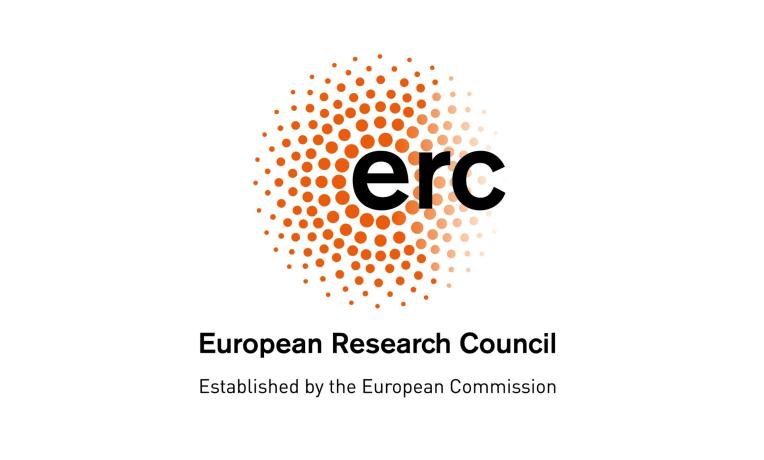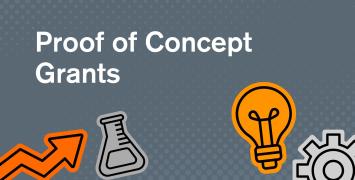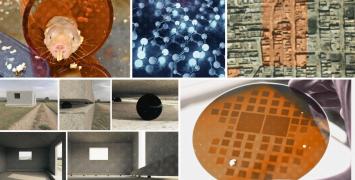
High-fat diet and spread of cancer
Metastasis, the spread of cancer to different parts of the body, is the leading cause of cancer-related deaths.
Salvador Aznar Benitah from Institute for Research in Biomedicine in Barcelona has recently discovered a link between the predisposition of metastasis and the dietary fat. But there are still many unanswered questions about the cells that initiate the cancer's spread, their location in tumours and the reasons why they are so sensitive to fat. With an ERC Advanced Grant, Prof. Aznar aims to provide fundamental insights into the mechanisms of metastases and how they are influenced by diet. While large amounts of fat is consumed through processed food in industrialized countries, Prof. Azner's research may clarify if targeting it could open a way to inhibit and prevent metastasis.
Project: Dietary Influences on Metastasis: How, When, and Why (LIPOMET)
Researcher: Salvador Aznar Benitah
Host Institution: Institute for Research in Biomedicine, Spain
ERC Funding: € 2.5 million for five years
The age of electoral hostility
Why do people hate each other for supporting different sides in a referendum or an election, and how can democratic societies reconcile after such a rift? In the aftermath of the Brexit referendum, 51 % of UK citizens felt anger towards opposite voters, and 46 % felt disgust. The situation that followed the 2016 US Presidential election was hardly more serene. Electoral disagreements have always existed, but situations where people end up hating each other due to different voting preferences seem increasingly common. Electoral hostility can encompass emotions such as frustration, anger and contempt, and at worst, it may split friends and families, threaten civic respect and solidarity mechanisms, or make citizens resent each other and drift apart into divided societies.
Michael Bruter and his team at the London School of Economics and Political Science set to examine the causes and consequences of electoral hostility at individual, group, and aggregate levels. The research analyses how electoral hostility develops over time and potential solutions to resolve it. It will combine methods such as visual and physiological experiments, election diaries, and panel study surveys in 27 countries.
Project: The Age of Electoral Hostility: Understanding the Nature, Dynamics, Determinants, and Consequences of Citizens’ Electoral Hostility in 27 Democracies (ELHO)
Researcher: Michael Bruter
Host Institution: London School of Economics and Political Science, UK
Funding: € 2.5 million euro for five years
How much are our immune responses affected by our genes?
Why do people respond differently to infections and vaccination? Why do some people develop immune-associated diseases? We know that adaptive immunity plays a critical role in health management, but little is known about how inherited variations in the genes responsible for antigen recognition influence our bodies' immune responses.
To answer these questions, a new project led by Gunilla Karlsson Hedestam, based at Karolinska Institutet, Sweden, will explore human adaptive immune gene diversity and its impact on disease using novel technology and processes. To enable future research in this area, the team will develop robust protocols that allow the analysis of adaptive immune receptor genes from large cohorts of individuals. The project will result in the creation of individualised immune receptor germline gene databases representing thousands of individuals, as well as freely accessible software tools for analysis of immune repertoire data that can be used by other researchers.
Project: Defining of human adaptive immune gene diversity and its impact on disease (IMMUNEDIVERSITY)
Researcher: Gunilla Karlsson Hedestam
Host Institution: Karolinska Institutet, Sweden
ERC Funding: € 2.5 million for five years
Life's origins in a lab
Can there be a bigger mystery than the origin of life? How did non-living matter evolved into living systems that established themselves so robustly on Earth?
Dieter Braun from the Physics Department of the Ludwig-Maximilian University in Munich, Germany, set out to answer these ambitious questions. He wants to recreate the first steps of molecular evolution in microscale experiments – life's origins in a lab. Prof. Braun and his team aims to trigger the autonomous emergence of the first short DNA or RNA molecules, starting from simple molecules in simulated heated rock pores of early Earth around 4 billion years ago. They will explore selective mechanisms to trigger a fast progressing replication of the building blocks of living organisms. If successful, Prof. Braun's experiments will bridge the physics of dead mater with the early biochemistry of living systems.
Project: : Mechanisms to emerge and replicate the first sequence information of life in geothermal microfluidics of early Earth (EvoTrap)
Researcher: Dieter Braun
Host Institution: Ludwig-Maximilian University, Germany
ERC Funding: € 2.5 million
How can we make people act more honestly?
Lies and fraud can have considerable financial and societal costs. From minor selfish lies to massive cases of fraud, dishonest actions hurt us all.
A new study led by Salvatore Maria Aglioti at Università degli Studi Di Roma La Sapienza, will test whether we can alter peoples' dishonest tendencies, by changing their perception of themselves during interactions with both virtual avatars and with real people.
The eHONESTY project will assess dishonesty using novel variations of interactive scenarios in which people are tempted to lie to obtain a monetary payoff at the cost of others. To do this, the study's test subjects will undergo tasks involving real, virtual reality and web-based interactions. If bodily self-consciousness is manipulated, for example by changing an avatar used by an individual to communicate online, or giving them the feeling of being no longer just an individual but part of a wider group, then it can lead people to change how they respond in a given situation.
The results of this research may inspire new strategies for combating dishonesty and other unethical behavior by fostering a person-based approach that will complement existing cross-cultural, large-scale, societal investigations.
Project: Embodied Honesty in Real World and Digital Interactions (eHONESTY)
Researcher: Salvatore Maria Aglioti
Host Institution: Universita Degli Studi Di Roma La Sapienza, Italy
ERC Funding: € 2.5 million for five years
Fasting response and recovery: a lesson from our ancestors
Popular wisdom has it that adequate nutrition is crucial to recover from illness. Advanced Grant winner Greet Van den Berghe is looking at the subject from a different angle and intends to unveil the benefits of some of the human body's specific reactions to fasting for critically ill patients.
While developments in modern intensive care medicine can save patients in life-threatening conditions, several patients in intensive care units (ICUs) suffer from ICU-acquired brain and muscle dysfunctions. There is currently no treatment for these severe, debilitating conditions, which can increase the risk of late death.
Van den Berghe and colleagues hypothesize that resilience against such ICU-acquired conditions is linked to a more efficient use of stored fats and to an improved supply of energy to organs. Such mechanisms mimic part of the organism's response to fasting, and might have favoured those among our prehistoric nomadic hunter-gatherer ancestors who could endure long periods of food scarcity while being sick. Van den Berghe will investigate how replicating such fasting response could protect ICU patients and enhance their recovery.
Project: Survival of the Fittest: On how to enhance recovery from critical illness through learning from evolutionary conserved catabolic pathways (FitterR-CATABOLIC)
Researcher: Greet Van den Berghe
Host Institution: Katholieke Universiteit Leuven, Belgium
ERC Funding: € 2.5 million for five years
New momentum to women, peace and security
In armed conflicts, women often are targeted, for example with sexual violence, and they suffer because they are ignored, their rights and interests being disregarded. Women's voices are also rarely heard when peace is negotiated. In 2000, the UN Security Council adopted Resolution 1325 that called for women's participation in peace building. It was followed by other legal acts that together made the Women, Peace and Security (WPS) Agenda. According to
Christine Chinkin, from the London School of Economics and Political Science, the Agenda failed to live up to its promises and hasn't translated gender perspectives into international law.
Supported with an ERC Advanced Grant, Prof. Chinkin wants to tackle the problem in her research. Combining international relations, conflict studies, gender studies and economics, she and her team aim to develop the first integrated normative framework for gendered international law of peace, challenging how gender equality and peace are understood and giving new momentum to the WPS Agenda.
Project: A Gendered International Law of Peace (GenderedPeace)
Researcher: Christine Chinkin
Host Institution: London School of Economics and Political Science, UK
ERC Funding: € 2.5 million for five years
The shape of proteins: towards a new class of molecular machines
Proteins are the most versatile and complex smart nanomaterials. They play a key role in all biological systems and, among numerous other functions, they work as natural molecular machines. Despite major advancements in nanotechnology, man-made nanostructures have not yet achieved the same degree of versatility and functionality of proteins.
Roman Jerala, at the National Institute of Chemistry in Ljubljana, intends to tackle this shortcoming by using a new class of proteins, whose shape and features are unseen in nature.
In the past few years, Jerala and his team have pioneered the design of a new type of coiled-coil protein origami. Constructed as three-dimensional figures in different shapes with edges composed of double helices, such molecules possess unique features, distinct from natural proteins, making them the perfect candidate to model innovative molecular machines. These could have significant potential for scientific and medical application, including enhanced drug delivery technologies.
Project: Molecular machines based on coiled-coil protein origami (MaCChines)
Researcher: Roman Jerala
Host Institution: National Institute of Chemistry, Slovenia
ERC Funding: € 2.5 million for five years
Stories of hope: the legacy of political activism
Mass demonstrations often make the headlines and some of them have become part of our collective memory. But what makes some protest movements more memorable than others, and how do the stories about them influence later generations of activists? So far, studies of cultural memory have focused on the traumatic legacies of war and human rights violations, but Ann Rigney at Utrecht University proposes to adopt a different perspective.
Rigney hypothesizes that, since the early 19th century, the memory of earlier activism has fed into ensuing protest movements, in a process that has relied on an array of media technologies – from print in the Chartist era and television in the student movements of the 1960s, to social media in the recent Occupy movements. Rigney intends to explore the ways in which hope and positive cultural legacies arising from civil resistance have been represented and communicated to others. Her study will improve our understanding of civil resistance and of the collective narratives that uphold identity and civic commitment in today's world.
Project: Remembering Activism: The Cultural Memory of Protest in Europe (ReAct)
Researcher: Ann Rigney
Host Institution: Utrecht University, The Netherlands
ERC Funding: € 2.5 million for five years
Mending broken hearts
Cardiovascular disease, such as heart failure and heart attack, is the main cause of death for men and women in most of the European countries, and accounts for almost 40% of all deaths in the EU. Despite remarkable progress in surgical and medical therapies, there is a lack of curative treatments for cardiac injury, and the long-term survival of patients with heart failure remains poor.
Heart attack typically results in irreversible loss of cardiac muscle cells, which are incapable of significant regeneration in adult life. Professor Mauro Giacca, from the University of Trieste, aims to identify novel factors that could promote this process through the administration of therapeutic molecules, developed out of small proteins and microRNAs. The findings could potentially lead to innovative treatments to induce heart regeneration.
Project: Cardiac Regeneration from within (CuRE)
Researcher: Mauro Giacca
Host Institution: University of Trieste, Italy
ERC Funding: € 2.5 million for five years
Using underwater communication cables in earthquake warning systems
70% of the earth’s surface is covered by water and difficult to monitor with modern seismological instruments, making it hard to obtain data from submarine fault lines that would help anticipate earthquakes. But a solution may be at hand, using the fiber-optic communication cable networks that crisscross our seafloor.
The FOCUS project, led by Marc-André Gutscher at the CNRS, IUEM Plouzané, would lay the groundwork for a revolutionary secondary use of these underwater cables: monitoring deformation caused by active faults on the seafloor. The project will for the first time apply a technique commonly used for structural health monitoring of large-scale engineering structures (bridges, dams, pipelines): laser reflectometry, specifically Brillouin optical time domain reflectometry (BOTDR), to the study of submarine faults. The project's primary offshore test site is in Sicily, and may be expanded to other existing networks in earthquake hazard zones such as Japan and Cascadia, or to the Mediterranean region.
Project: Fiber Optic Cable Use for Seafloor studies of earthquake hazard and deformation (FOCUS)
Researcher: Marc-André Gutscher
Host Institution: CNRS, France
ERC Funding: € 3.49 million for five years
Bacterial warfare
Bacteria are often extremely aggressive towards one another. They release toxins into their environment, stab neighbours with poisoned molecular spears, and may even commit suicide in order to launch their attack. This contrasts with animal contests, where a large body of work has sought to understand why animals are so reluctant to fight one another. The evolution of aggressive behaviour in bacteria thus challenges our current understanding of competition in biology.
Professor Kevin Foster, from the University of Oxford, intends to use bacteria's extreme aggression as a model to provide a new perspective on competitive evolution.
To be able to understand bacteria behaviour, the research team will combine several methods, including competition experiments, game theory, experimental evolution, and molecular genetics. They will also co-develop techniques to provide images of bacterial battlegrounds at the molecular scale.
Project: The Evolution of Bacterial Warfare (MicroWars)
Researcher: Kevin R. Foster
Host Institution: University of Oxford
ERC Funding: € 2.75 million for five years
Babies' brains and the pollution problem
A new study will focus on the effect of air pollution on baby brain development during the prenatal period. At this time brain structures are forming and growing, and the effect of in utero exposure to environmental factors could cause permanent brain injury.
owever there is a current lack of research on the most vulnerable stages of brain development, as well as data concerning brain anatomical structure and regional connectivity underlying these effects. Jordi Sunyer i Deu of the Barcelona Institute for Global Health - ISGlobal - will follow 1200 pregnant women and their newly born children who will have naturally experienced different levels of pre-natal exposure to air pollutants. The study's results should create an impulse to implement policy interventions that genuinely protect the health of urban citizens.
Project: Pre-natal exposure to urban AIR pollution and pre- and post-Natal Brain development (AIR-NB)
Researcher: Jordi Sunyer i Deu
Host Institution: Barcelona Institute for Global Health - ISGlobal, Spain
ERC Funding: € 2.5 million for five years





